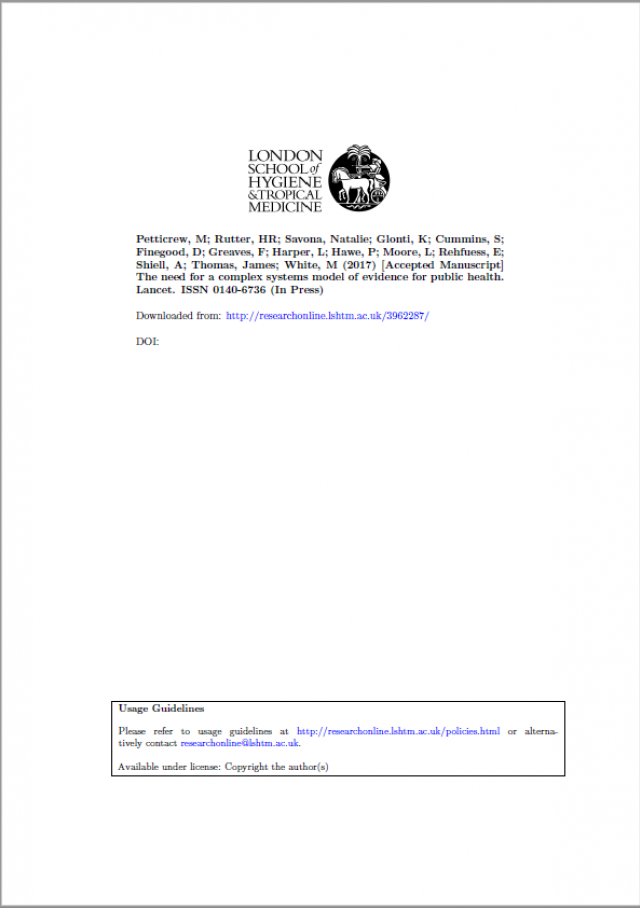The need for a complex systems model of evidence for public health
June 2017

Key points
- We are faced with many big health challenges in our society. Their complex nature is an ongoing problem for public health research and policy.
- Such challenges often involve multiple factors operating over many decades in systems that adapt as changes occur. For example, the distribution of obesity in a population might be impacted by changes to food, employment, transport or economic systems.
- The traditional linear model of research is not suited to tackling these challenges. This is because it focuses largely on changes in individuals, not the population as a whole, and because it tends to look at isolated interventions rather than the contexts in which they take place.
- There is growing recognition that we need a new evidence model that looks at public health problems, and our potential responses, in terms of a complex systems approach.
The Health Foundation is working with Dr Harry Rutter from the London School of Hygiene and Tropical Medicine to develop a new model of evidence that will inform public health research, policy and practice.
As part of this work Dr Rutter and co-authors from the Health Foundation and around the world have published a Viewpoint paper in The Lancet that outlines the need for new approaches to designing and evaluating population-level interventions to improve health.
Further reading
Work with us
We look for talented and passionate individuals as everyone at the Health Foundation has an important role to play.
View current vacanciesThe Q community
Q is an initiative connecting people with improvement expertise across the UK.
Find out more

